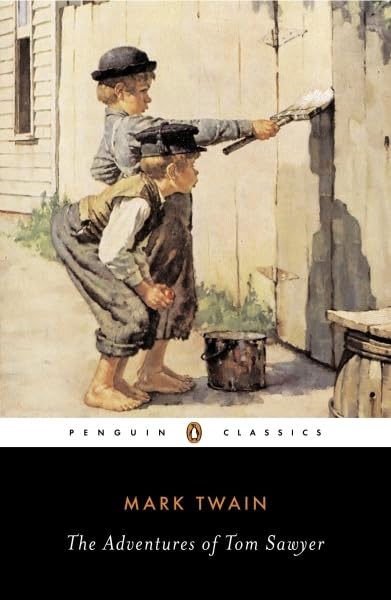I confess: I am a late-night reality TV binger. After a day of writing black and white words on a computer screen, wading into deep, quiet page pools, and capturing fantasy scenes as quick as my fingers can follow, my brain is pickled come nightfall. While my husband unwinds with epic movies, intricate crime dramas, and complicated plots, I lean toward one-hour forays into reality’s peccadilloes. Judge as you may. And rightfully so.
At a particular hour, my mind goes flat as a penny, ready to be dropped in the candy turnstile for bubblegum reward. It isn’t hard to find fodder for my bender. Years ago, Survivor was the only “reality show” on prime time. Now, however, they’ve become the mainstay of network programming.
Just when I’d pronounced myself lost to empty, mindless indulgence, I invented a game: matching reality programs with classic literature. After playing a few times on the couch (flat screen to my left, library shelf to my right), I’m now unable to watch reality shows without asking, “So, what book is this like?” Inevitably, I discover one lesson on how to live and another on how to write.
Here are some of the cards on my DVR deck:
 1) Hoarders by A&E/Madame Bovary by Gustave Flaubert
1) Hoarders by A&E/Madame Bovary by Gustave Flaubert
Life Lesson: There’s a fine line between wanting to possess all the best and madness.
Writing Lesson: Beware of overwriting. That collection of French lace doilies on the piano, drawers of prized pewter spoons, and shelves of antique Dresden figurines might make you proud, but if they don’t serve a plot purpose, they’re no better than Emma’s house of debt. Box up the expensive word clutter and give it to the story Goodwill. The prose will be finer for it, and you won’t have to eat arsenic to get out of bankruptcy with readers.
 2) The Bachelor by ABC and The Voice by NBC/”The Little Mermaid” by Hans Christian Andersen
2) The Bachelor by ABC and The Voice by NBC/”The Little Mermaid” by Hans Christian Andersen
Life Lesson: A pretty face will only get you so far. Never underestimate the power of your unique voice.
Writing Lesson: Describing a story’s landscape, clothing, food, room objects, etcetera is excellent to immerse the reader in your fictional world, but the voices of the characters are the true lifeblood of the narrative. You lose those and all the rest is flotsam on the sea.
 3) American Pickers by The History Channel/“Aladdin’s Wonderful Lamp” in The Arabian Nights by Antoine Galland
3) American Pickers by The History Channel/“Aladdin’s Wonderful Lamp” in The Arabian Nights by Antoine Galland
Life Lesson: That corroded oil lamp might be worth something…extraordinary. But if you leave it buried in the garage, it’s just a forgotten thing.
Writing Lesson: Don’t be afraid to take your time and dig through the top layer of your story idea, to research and explore the possibilities of seemingly grimy, old secrets. Those usually prove the most valuable to the makeup of your characters and plot. A diamond isn’t glittering bright in the mine. It’s hidden, dirty, and in need of someone with the patience to give it a good scrub and believe in its splendor.
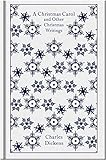 4) Duck Dynasty by A&E/A Christmas Carol by Charles Dickens
4) Duck Dynasty by A&E/A Christmas Carol by Charles Dickens
Life Lesson: At the end of your best or worst day, gathering round the table with your family for blessing and home cooking feels good.
Writing Lesson: As writers, we often neglect our realities for the prose. We invest so much of ourselves in our craft that how the writing goes is how we go. A good writing day and we are Pollyannas. A bad writing day and we grump around the house, annoyed that the dog dared step in our path. I’ve learned that after a long stretch of writing — good or bad — I need dinnertime. I gather ingredients, chop, sauté, simmer, and cook a solid meal, then I sit with my family and reconnect. It never fails to ground me and rejuvenate my creativity.
 5) The Real Housewives by Bravo/Lord of the Flies by William Golding
5) The Real Housewives by Bravo/Lord of the Flies by William Golding
Life Lesson: Whenever you make your world a remote island, there’s bound to be a tribe gang-up, a broken shell of decorum, and people listening to pig-headed voices. Savage.
Writing Lesson: Enclosed scenes are dramatic. Lock your characters together in a room (be it a gated community or an island). It’s bound to produce conflict and conflict is story fuel.
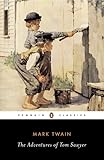 6) Breaking Amish by TLC/The Adventures of Tom Sawyer by Mark Twain
6) Breaking Amish by TLC/The Adventures of Tom Sawyer by Mark Twain
Life Lesson: “Often, the less there is to justify a traditional custom, the harder it is to get rid of it.” From Tom himself.
Writing Lesson: Everyone wants the bylaws to writing prosperity. That’s why nearly every published author interview includes the question: “What’s your daily routine like?” We want to know how they did it so, perhaps, we can mimic to similar results. But the truth is, there is no set of commandments. One of my M.F.A. mentors wisely counseled me that yes, creative workshops and studying great literary masterpieces would strengthen my writing muscles. My shiny diploma would be a reminder that I exercised with experts and tested well. But…so what? In the end, she said true success would only come when I threw the traditions out the window and journeyed on my own. That pretty much terrified me. Now, I realize how right she was.
 7) Love It or List It by HGTV/The Secret Garden by Frances Hodgson Burnett
7) Love It or List It by HGTV/The Secret Garden by Frances Hodgson Burnett
Life Lesson: If you’ve re-envisioned, demolished walls, rebuilt, replanted and repainted, sweat, cried, and exhausted yourself in the creative process but the results don’t make you marvel, it may be time to move on.
Writing Lesson: Never be afraid to shelf a project or even (gasp!) toss it in the never-to-be-seen-again drawer. I have two entire novels in that garbage drawer and one novel on the maybe-another-day shelf. I had to write these books to be able to move on to better story ideas. There’s nothing wrong with that. In fact, one might argue it’s far healthier than sitting on a mush of an overworked book that you find tired and dreary. I’m not an advocate of book burning or anything dramatic. Keep the pages under lock and key. Stroll through them from time to time if you like and maybe, one day, their season of bloom will come round…or maybe not. And that’s okay, too.
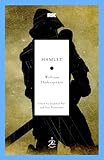 8) Family S.O.S. by TLC/Hamlet by William Shakespeare
8) Family S.O.S. by TLC/Hamlet by William Shakespeare
Life Lesson: A dysfunctional household begets progeny that may end up poisoning the whole lot. The Brits get it. S.O.S., Kenneth Branagh and Jo Frost.
Writing Lesson: Stop and examine your writing motives. Be real with yourself: ask why you want to write and answer truthfully. It’s between you and you. If your aim has anything to do with money, power, fame, revenge, or recreating the death of your father to shame your mother, well, you got trouble in your household. All of these are toxic to your book and the writing community. If your answer has to do with being devoted to a story and so blitzed in love with the characters that you feel a physical ache whenever you aren’t actively engaged with them, then you’ve got a wholesome foundation to build on.
 9) Giving You The Business by the Food Network/The Hobbit by J.R.R. Tolkien
9) Giving You The Business by the Food Network/The Hobbit by J.R.R. Tolkien
Life Lesson: To whom much is given, much is expected.
Writing Lesson: We don’t bequeath our treasured stories to just anybody. As writers, we need to remember it’s vitally important to be readers and cheerleaders of each other. We’ve been given much and we must give in equal abundance. I don’t understand anyone who wants the world to sing his/her written praises, yet remains mum about courageous colleagues. We need the “Fellowship of the Book” for all to succeed.
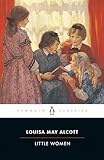 10) Keeping up with the Kardashians by E!/Little Women by Louisa May Alcott
10) Keeping up with the Kardashians by E!/Little Women by Louisa May Alcott
Life Lesson: They may drive you crazy, destroy your prized possessions, steal your best friend, and break your heart, but when it comes down to the brass tacks, your family will fight the paparazzi for you.
Writing Lesson: Your characters might make you crazy, keep you up all hours chatting your ear off, and cause you to wonder if you’re clinically diagnosable, but they are your people — as much a part of you as your kin. In some ways, they might even be more you than flesh and blood. So forget everything else and fight for them. No matter what happens in the story or with the manuscript, that’s one thing you won’t ever regret.
Image Credit: Wikipedia

